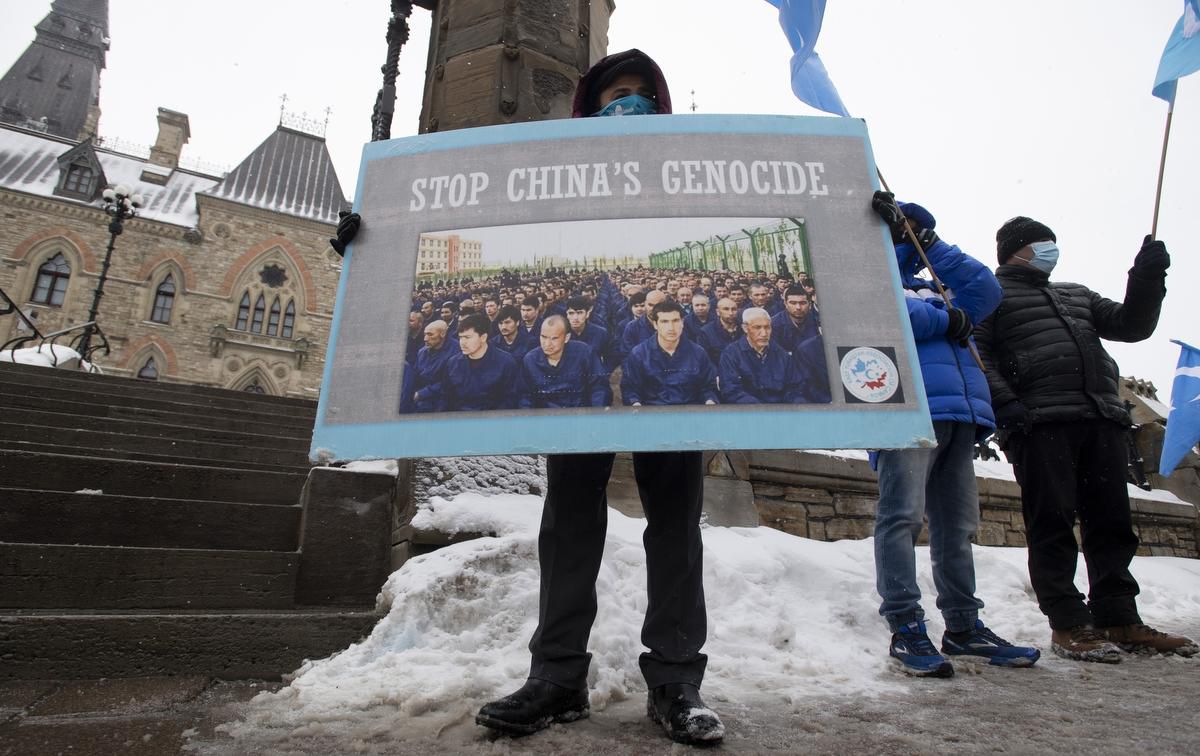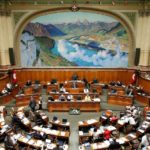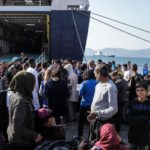Foreign Affairs Minister Marc Garneau compares dealing with China on the international stage to standing up to a schoolyard bully.
“I’ve known bullies in my life, and I know bullies can change, but bullies don’t change unless you send very clear messages to them,” Garneau said in an interview airing this morning on CBC’s political affairs program, The House.
Canada joined the the United States, United Kingdom and European Union this week in imposing sanctions on four Chinese officials suspected of being responsible for the persecution of Uyghurs and other Muslim minorities in Xinjiang province.
In response, China on Saturday announced sanctions on individuals and entities in the United States and Canada, including sanctioning Conservative MP Michael Chong and the House of Commons Subcommittee on International Human Rights.

The sanctions imposed by Canada allow this country to freeze any assets the officials have here, and to ban them from entering the country.
It’s a more assertive stance for Canada, which to date has opted not to join the U.S. in labelling China’s treatment of the Uyghurs as “genocide.”
Garneau wouldn’t say if this round of sanctions might be extended to anyone in Chinese President Xi Jinping’s immediate circle to protest the continued detention of Canadians Michael Spavor and Michael Kovrig.
CBC News: The House9:05Garneau on Canada’s ‘clear messages’ this week
The House hears from Foreign Affairs Minister Marc Garneau on the messages Canada is sending after the federal government moved to sanction top Chinese and Russian officials. 9:05
“I’m not going to speculate on what we may do in the future. As you know, we are very focused on trying to get the two Michaels freed because they have been arbitrarily detained on totally trumped-up charges,” he said.
Garneau stepped carefully when commenting on China as this country’s top diplomat — aware that his words could make the situation worse for the two Canadians.

But his frustration is evident. Both Kovrig and Spavor were tried in secret after more than two years in prison — an apparent act of retaliation by China for Canada’s arrest of Huawei executive Meng Wanzhou on a U.S. extradition warrant.
While Meng is free on bail and living in one of her two Vancouver homes, the two Canadians remain in solitary confinement and are being denied regular access to consular officials.

Garneau said international pressure will keep mounting until both men are freed and China abandons its tactic of arbitrarily detaining citizens of other countries to exert pressure on their governments.
“We are going to continue giving that message to China. And we were very gratified to see 22 other countries join us for Michael Kovrig’s trial in Beijing on Monday,” he told The House.
“And that is a clear indication to China that we are acting together in a coordinated, multilateral fashion to carry a very strong message to China. And we’re going to continue to do it.
“It is particularly important that democratic countries that abide by international rules carry the message to countries like China and Russia and Myanmar and Belarus and Venezuela, who are authoritarian regimes, who do not believe that they need to respect the rule of law.”
China insists the two Canadians are being treated in accordance with international law. Chinese officials responded angrily to the sanctions announced this week in response to what U.K. Foreign Secretary Dominic Raab called “appalling violations of the most basic human rights” in Xinjiang.
“By acting with our partners, 30 of us in total, we are sending the clearest message to the Chinese government that the international community will not turn a blind eye to such serious and systemic violations of basic human rights, and that we will act, in concert, to hold those responsible to account,” Raab said Monday in the British Parliament.
China isn’t the only international file dominating Garneau’s week.
He spoke about the European Union’s new round of export controls on COVID-19 vaccines produced in the region and whether Canada is prepared to limit travel to and from countries such as Brazil — where the number of COVID-19 cases now exceeds 12 million and only 6 per cent of the population has been vaccinated.

Garneau said public health officials are responsible for assessing the risk posed by anyone coming from Brazil. He added he will be raising Canada’s “deep concern” about Brazil’s response to the pandemic directly with his counterpart in the coming days.
“We have a host of areas that we’re going to discuss, but certainly we will be carrying the message that we’re very concerned about the high rate of COVID-19 and variants that exists in Brazil.”
He might not get the chance soon. News reports out of Brazil late Friday indicated Foreign Minister Ernesto Araujo is under pressure from lawmakers there to resign over his poor handling of the crisis and negotiations with vaccine-makers.
Source:CBC



